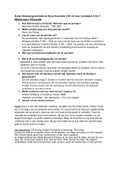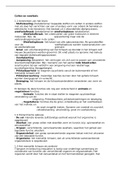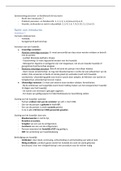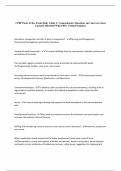The presentation of masculinity in “From the Journal of a Disappointed Man” and “Eat
Me”
Masculinity is presented in From the Journal of a Disappointed Man through the observations of
the male speaker, whereas in Eat Me, masculinity is presented to the reader through the female
speaker’s account. In the Journal, the men are objectified by the male persona, whereas in Eat
Me the female persona is objectified by a secondary male character. Furthermore, Motion uses
a male speaker to explore two sides of masculinity, while Agbabi uses a female speaker to
explore two states of masculinity, and Motion’s poem is centred around men, whereas Eat Me is
centred around a woman.
Masculinity is presented through objectification in both the Journal and Eat Me, but the Journal
demonstrates an objectification of the male form, while Eat Me demonstrates that of the female
form. In the Journal, the persona “watches [the men]” and “pay[s] close attention” to their “strong
arms”. This close observation of their bodies is something that some may associate with men,
but usually with women on the receiving end; this may mean that the persona is attracted to
these men, as being “strong” is often seen as an appealing feature of the male form.
Alternatively, the male speaker may desire to have these aspects himself, rather than desiring
the men themselves. In Eat Me, the speaker’s husband objectifies her feminine form, as he
“watches [her] broad belly.” Agbabi creates a plosive sound with the alliteration of “b”, which
sounds harsh and abrupt, perhaps reflecting his straightforward objective of making her “swell
like forbidden fruit” for his own pleasure. His obsession with her “multiple chins” and “masses of
cellulite” paired with her unhappiness implies a male selfishness and, like the Journal, suggests
that objectification of others is a natural part of being a man.
A contrast between two differing perspectives of masculinity is presented in both poems.
However, the Journal demonstrates powerful versus passive masculinity, and Eat Me
demonstrates the state of male control versus lack of male control. In the Journal, the “massive
[men]” are of a “massive style” and are part of a “massive affair.” The repetition of “massive”
throughout the poem creates the image of big, bulky men who exert strength and power, and
also an overwhelming presence of masculinity, which contrasts with the masculinity of the
speaker who has a “journal” and writes about “paraphernalia” and “ruminative men.” His use of
complex polysyllabic diction shows that he is of a higher education than these men, who only
speak in monosyllabic imperatives: “Let go” and “hold tight”, perhaps portraying that he is a
more erudite, reserved man who prefers to stay passive and observant. In Eat Me, the male
character is dominant and has agency at first, as “he brought”, “he asked”, and “he could
watch”, while the speaker “did what [she] was told.” Agbabi uses the repetition of the pronoun
“he” to demonstrate masculine control, and the anaphora of “too fat” suggests that he not only
controls her physique but her mind too. However, the agency changes when “[she] allowed him
to stroke” shortly before “[she] rolled”, “[she] drowned his dying sentence out” and “[she] left him
there.” The female is now dominant, making the male submissive, perhaps suggesting that the
only way to subvert gender-power dynamics is to eliminate the man, which may indicate the
prominence of masculinity in society.
Me”
Masculinity is presented in From the Journal of a Disappointed Man through the observations of
the male speaker, whereas in Eat Me, masculinity is presented to the reader through the female
speaker’s account. In the Journal, the men are objectified by the male persona, whereas in Eat
Me the female persona is objectified by a secondary male character. Furthermore, Motion uses
a male speaker to explore two sides of masculinity, while Agbabi uses a female speaker to
explore two states of masculinity, and Motion’s poem is centred around men, whereas Eat Me is
centred around a woman.
Masculinity is presented through objectification in both the Journal and Eat Me, but the Journal
demonstrates an objectification of the male form, while Eat Me demonstrates that of the female
form. In the Journal, the persona “watches [the men]” and “pay[s] close attention” to their “strong
arms”. This close observation of their bodies is something that some may associate with men,
but usually with women on the receiving end; this may mean that the persona is attracted to
these men, as being “strong” is often seen as an appealing feature of the male form.
Alternatively, the male speaker may desire to have these aspects himself, rather than desiring
the men themselves. In Eat Me, the speaker’s husband objectifies her feminine form, as he
“watches [her] broad belly.” Agbabi creates a plosive sound with the alliteration of “b”, which
sounds harsh and abrupt, perhaps reflecting his straightforward objective of making her “swell
like forbidden fruit” for his own pleasure. His obsession with her “multiple chins” and “masses of
cellulite” paired with her unhappiness implies a male selfishness and, like the Journal, suggests
that objectification of others is a natural part of being a man.
A contrast between two differing perspectives of masculinity is presented in both poems.
However, the Journal demonstrates powerful versus passive masculinity, and Eat Me
demonstrates the state of male control versus lack of male control. In the Journal, the “massive
[men]” are of a “massive style” and are part of a “massive affair.” The repetition of “massive”
throughout the poem creates the image of big, bulky men who exert strength and power, and
also an overwhelming presence of masculinity, which contrasts with the masculinity of the
speaker who has a “journal” and writes about “paraphernalia” and “ruminative men.” His use of
complex polysyllabic diction shows that he is of a higher education than these men, who only
speak in monosyllabic imperatives: “Let go” and “hold tight”, perhaps portraying that he is a
more erudite, reserved man who prefers to stay passive and observant. In Eat Me, the male
character is dominant and has agency at first, as “he brought”, “he asked”, and “he could
watch”, while the speaker “did what [she] was told.” Agbabi uses the repetition of the pronoun
“he” to demonstrate masculine control, and the anaphora of “too fat” suggests that he not only
controls her physique but her mind too. However, the agency changes when “[she] allowed him
to stroke” shortly before “[she] rolled”, “[she] drowned his dying sentence out” and “[she] left him
there.” The female is now dominant, making the male submissive, perhaps suggesting that the
only way to subvert gender-power dynamics is to eliminate the man, which may indicate the
prominence of masculinity in society.






